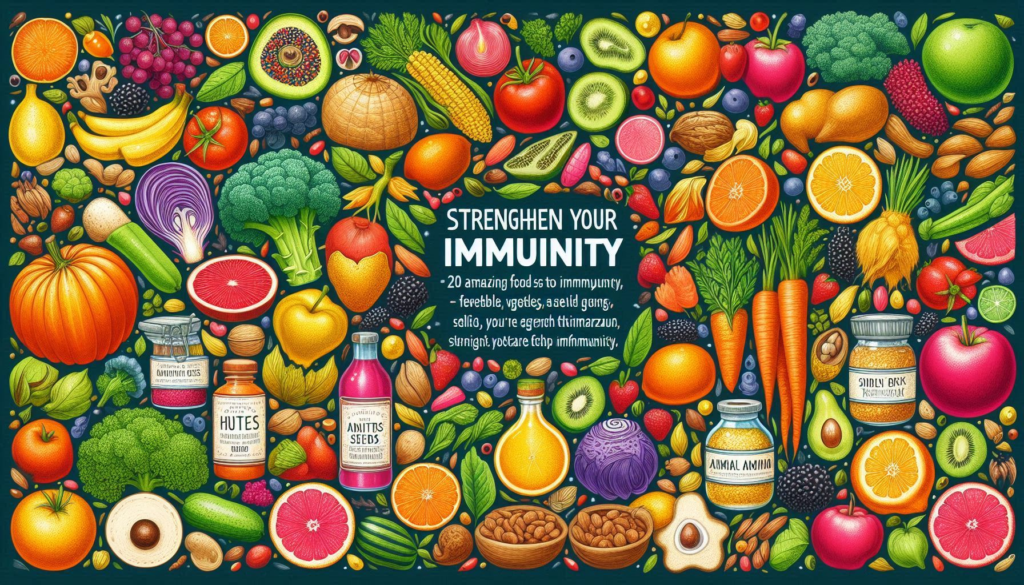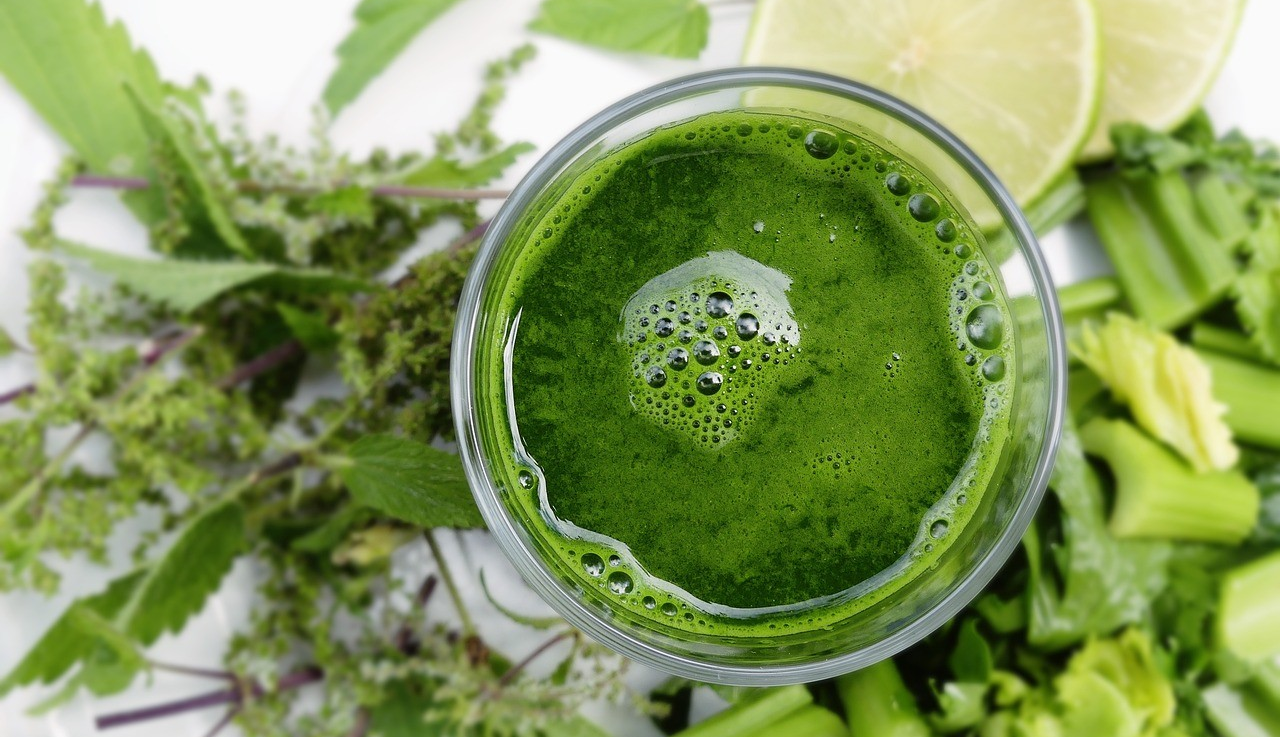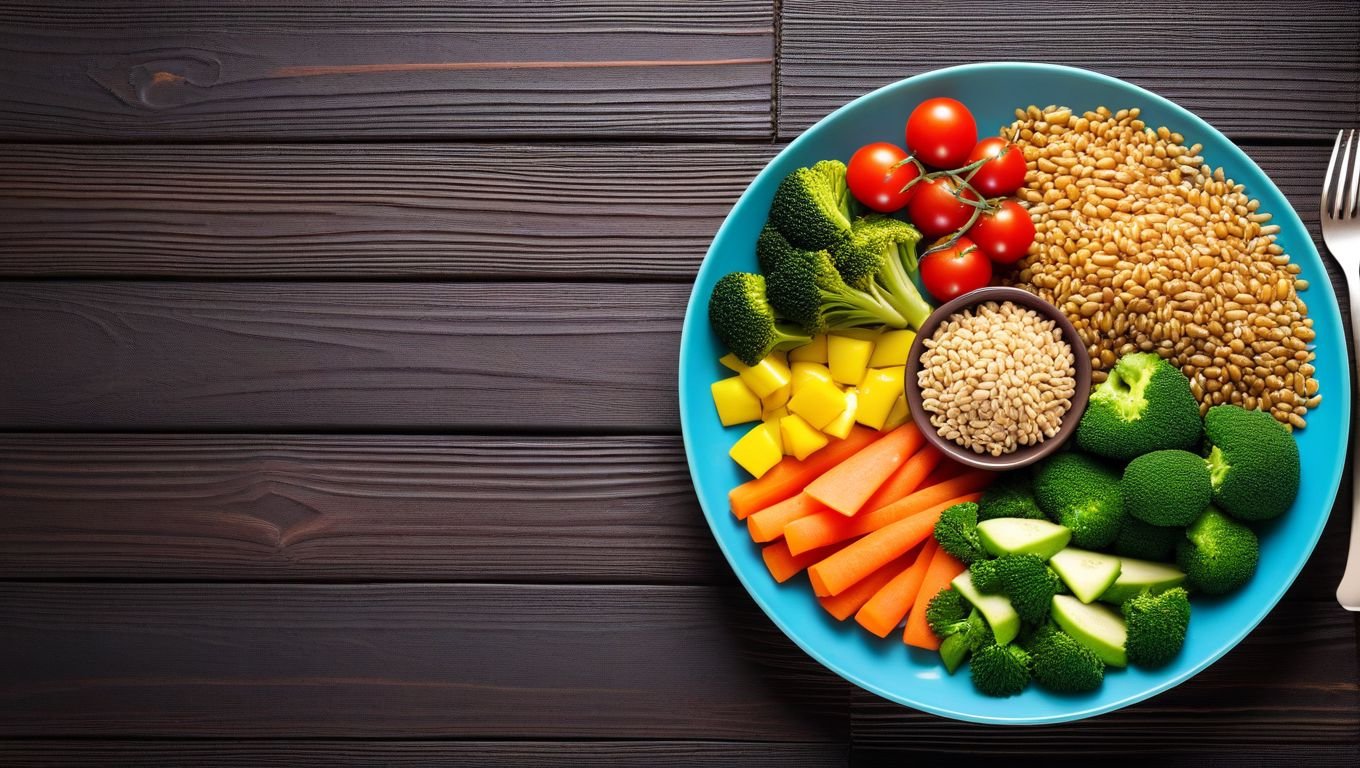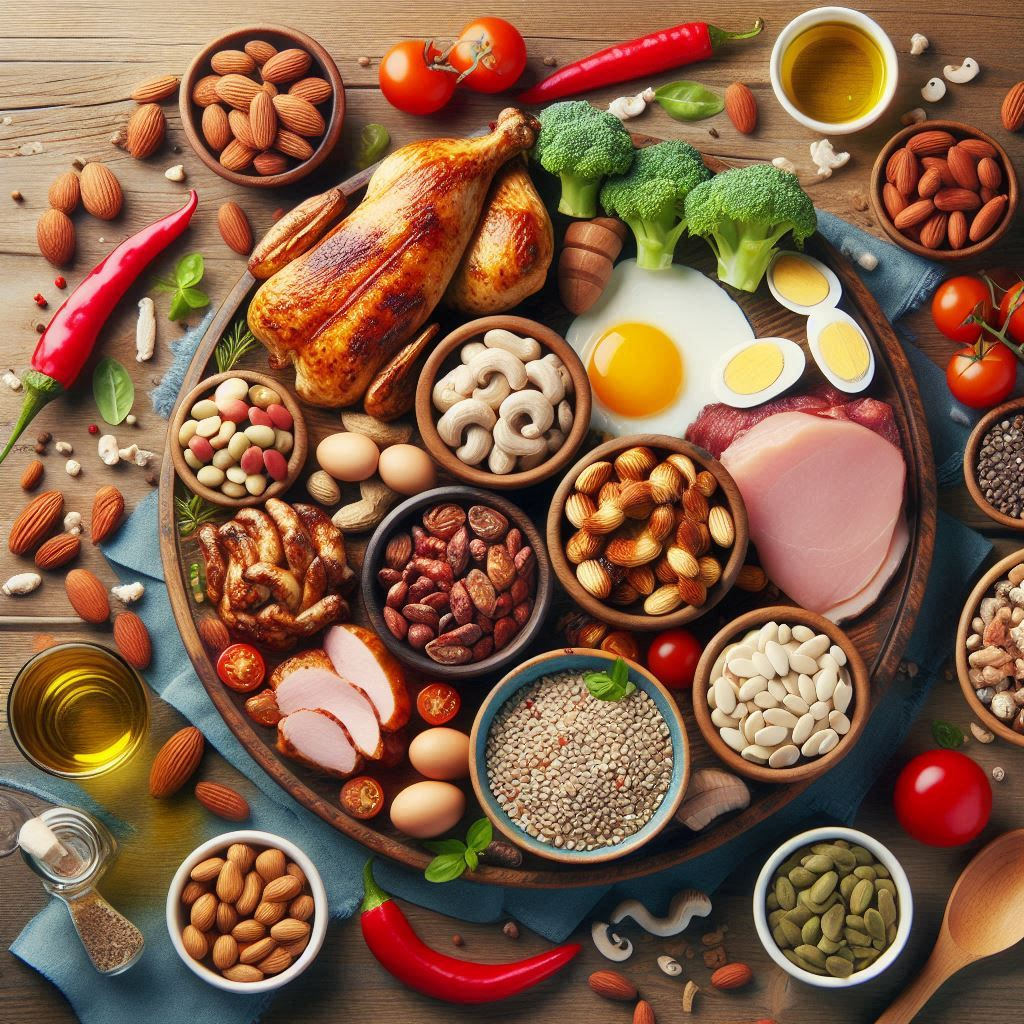“Boost your immunity with these 20 amazing foods. Discover nutritious options to strengthen your immune system and fight off illness!”

Understanding Your Immune System: A Brief Overview
Our immune system is a complex network of cells, tissues, and organs that work together to defend our body against harmful pathogens. As someone who’s deeply interested in health and wellness, I’ve come to appreciate the intricate nature of this vital system. It’s not just about fighting off the common cold; our immune system plays a crucial role in maintaining overall health and preventing a wide range of diseases.
The immune system operates on two levels: innate immunity, which provides a general defense against all invaders, and adaptive immunity, which develops specific responses to particular pathogens. What fascinates me is how our lifestyle choices, especially our diet, can significantly impact the efficiency of these immune responses.
Understanding the basics of our immune system is the first step towards taking control of our health. By recognizing its importance, we can make informed decisions about our diet and lifestyle that support and enhance our body’s natural defense mechanisms.
The Power of Nutrition in Boosting Immunity
When it comes to strengthening our immune system, nutrition plays a pivotal role. I’ve learned through extensive research and personal experience that the foods we consume can either bolster or weaken our body’s ability to fight off infections. It’s not just about eating more of certain foods; it’s about creating a balanced diet that provides our immune system with the tools it needs to function optimally.
Key nutrients that support immune function include:
- Vitamins (especially A, C, D, and E)
- Minerals (such as zinc and selenium)
- Antioxidants
- Probiotics
- Essential fatty acids
By incorporating a variety of nutrient-dense foods into our diet, we can ensure that our immune system has the resources it needs to operate at peak performance. This doesn’t mean we need to overhaul our entire diet overnight. Small, consistent changes can make a significant difference in our immune health over time.
While nutrition plays a crucial role, it is not the sole component. A robust immune system is created in tandem with adequate sleep, regular exercise, stress management, and good hygiene practices.
Top 20 Immune-Boosting Superfoods
- Citrus fruits (oranges, lemons, grapefruits)
- Berries (blueberries, strawberries, raspberries)
- Garlic
- Ginger
- Spinach
- Yogurt
- Almonds
- Turmeric
- Green tea
- Sweet potatoes
- Broccoli
- Red bell peppers
- Kiwi
- Papaya
- Salmon
- Mushrooms
- Kefir
- Chia seeds
- Pumpkin seeds
- Dark chocolate
These superfoods are packed with essential nutrients that support immune function. I’ve found that incorporating a variety of these foods into my diet has not only improved my immune health but also enhanced my overall well-being. Each of these foods offers unique benefits, from the vitamin C in citrus fruits to the antioxidants in berries and the anti-inflammatory properties of turmeric.
Vitamin C Powerhouses: Citrus Fruits and Beyond
When we think of immune-boosting foods, citrus fruits often come to mind first. And for good reason—they’re packed with vitamin C, a powerful antioxidant that supports the immune system. But did you know that there are many other foods that are even richer in vitamin C than oranges?
Here’s a list of some surprising vitamin C powerhouses:
- Red bell peppers (190 mg per 100 g)
- Guavas (228 mg per 100 g)
- Kiwi fruit (93 mg per 100 g)
- Broccoli (89 mg per 100 g)
- Brussels sprouts (85 mg per 100 g)
I’ve made it a point to include a variety of these foods in my diet, not just relying on citrus fruits. For instance, I love adding sliced red bell peppers to my salads or snacking on kiwifruit. It’s an easy and delicious way to ensure I’m getting enough vitamin C to support my immune system.
Remember, our bodies don’t produce or store vitamin C, so it’s crucial to include vitamin C-rich foods in our daily diet. This essential nutrient not only supports immune function but also aids in the absorption of iron and the production of collagen, making it a true multitasker for our health.
Antioxidant-Rich Foods for Immune Health
Antioxidants are our body’s defense against free radicals, unstable molecules that can damage cells and contribute to inflammation and disease. By incorporating antioxidant-rich foods into our diet, we can help protect our cells and support our immune system.
Some of the top antioxidant-rich foods include:
- Berries (blueberries, strawberries, blackberries)
- Dark leafy greens (spinach, kale)
- Nuts (pecans, walnuts)
- Dark chocolate
- Artichokes
- Beans (red beans, pinto beans)
- Prunes
I’ve found that starting my day with a berry smoothie or adding a handful of nuts to my afternoon snack is an easy way to boost my antioxidant intake. These foods not only support my immune system but also contribute to my overall health and well-being.
It’s worth noting that cooking methods can affect the antioxidant content of foods. Generally, raw or lightly steamed vegetables retain more antioxidants than those that are boiled or overcooked. I try to incorporate a mix of raw and lightly cooked vegetables into my meals to maximize their antioxidant benefits.
Probiotic and Prebiotic Foods for Gut-Immune Connection
The connection between gut health and immune function is a fascinating area of research that I’ve been following closely. Our gut is home to trillions of bacteria, collectively known as the microbiome, which plays a crucial role in our immune system. By consuming probiotic and prebiotic foods, we can support a healthy gut microbiome and, in turn, boost our immune function.
Probiotic foods contain beneficial live bacteria, while prebiotic foods provide the fiber that feeds these good bacteria. Here’s a list of some excellent probiotic and prebiotic foods:
Probiotics:
- Yogurt
- Kefir
- Sauerkraut
- Kimchi
- Kombucha
Prebiotics:
- Garlic
- Onions
- Leeks
- Asparagus
- Bananas
I’ve made it a habit to include both probiotic and prebiotic foods in my diet. For instance, I often start my day with a bowl of yogurt topped with banana slices and a drizzle of honey. It’s a delicious way to support my gut health and, by extension, my immune system.
Remember, when choosing probiotic foods, look for products that contain live and active cultures. For prebiotics, aim to include a variety of fiber-rich foods in your diet.
Herbs and Spices: Nature’s Immune Boosters
Herbs and spices are not just flavor enhancers; they’re potent sources of immune-boosting compounds. I’ve found that incorporating a variety of herbs and spices into my cooking not only makes my meals more delicious but also provides numerous health benefits.
Here are some of my favorite immune-boosting herbs and spices:
- Turmeric: Contains curcumin, a compound with powerful anti-inflammatory and antioxidant properties.
- Ginger: Known for its anti-inflammatory and antioxidant effects.
- Garlic: Rich in allicin, a compound that may enhance immune function.
- Oregano: Contains carvacrol and thymol, which have antimicrobial properties.
- Cinnamon: Has anti-inflammatory and antioxidant effects.
I love adding these herbs and spices to my meals in various ways. For example, I often make a warming turmeric latte with ginger and cinnamon, or I’ll add minced garlic and oregano to my pasta dishes. It’s an easy and flavorful way to boost my immune system.
Remember, while herbs and spices can be beneficial, they should be used as part of a balanced diet. Always consult with a healthcare professional before using herbs medicinally, especially if you’re taking medications or have existing health conditions.
Protein-Rich Foods to Strengthen Your Immune Defenses
Protein plays a crucial role in building and maintaining a strong immune system. It’s essential for the production of antibodies and immune system cells. As someone who’s always looking to optimize my health, I make sure to include a variety of protein-rich foods in my diet.
Here are some excellent sources of protein that also offer additional immune-boosting benefits:
- Lean meats (chicken, turkey)
- Fish (salmon, tuna)
- Eggs
- Legumes (lentils, chickpeas)
- Greek yogurt
- Nuts and seeds
I try to include protein in every meal. For instance, I might have eggs for breakfast, a chicken salad for lunch, and grilled salmon for dinner. For snacks, I often reach for Greek yogurt or a handful of nuts.
It’s important to note that plant-based proteins can be just as effective as animal proteins in supporting immune function. If you’re following a vegetarian or vegan diet, focus on combining different plant proteins to ensure you’re getting all the essential amino acids your body needs.
Remember, while protein is important, balance is key. Aim to get protein from a variety of sources and combine it with plenty of fruits, vegetables, and whole grains for a well-rounded, immune-supporting diet.
Hydration and Immunity: The Role of Water and Herbal Teas
Staying properly hydrated is crucial for maintaining a strong immune system. Water plays a vital role in our body’s natural detoxification processes and helps transport nutrients to our cells. I’ve made it a priority to ensure I’m well-hydrated throughout the day, and I’ve noticed a significant improvement in my overall health and energy levels.
While plain water is excellent for hydration, herbal teas can provide additional immune-boosting benefits. Here are some of my favorite immune-supporting herbal teas:
- Echinacea tea: May help reduce the duration and severity of colds.
- Green tea: Rich in antioxidants that support immune function.
- Elderberry tea: Contains compounds that may help fight viral infections.
- Ginger tea: Has anti-inflammatory properties and may help soothe sore throats.
- Chamomile tea can help promote relaxation and better sleep, which is crucial for immune health.
I like to start my day with a large glass of water and then sip on herbal teas throughout the day. It’s a comforting and effective way to stay hydrated while also supporting my immune system.
Remember, while herbal teas can be beneficial, they shouldn’t replace water as your primary source of hydration. Aim for at least 8 glasses of water per day, and enjoy herbal teas as a supplement to your water intake.
Incorporating Immune-Boosting Foods into Your Daily Diet
Incorporating immune-boosting foods into our daily diet doesn’t have to be complicated or time-consuming. With a little planning and creativity, we can easily increase our intake of these nutritious foods. Here are some strategies I’ve found helpful:
- Start your day right: Add berries to your morning oatmeal or yogurt for a dose of antioxidants.
- Snack smart: Keep nuts, seeds, and cut vegetables on hand for quick, nutrient-rich snacks.
- Soup it up: Make a big batch of vegetable soup packed with immune-boosting ingredients like garlic, onions, and leafy greens.
- Spice things up: Use herbs and spices liberally in your cooking to add flavor and immune-supporting compounds.
- Smoothie power: Blend together fruits, leafy greens, and yogurt for a quick and easy immune-boosting drink.
I’ve found that meal prepping on weekends helps me ensure I have plenty of immune-boosting foods ready to go throughout the week. For example, I might roast a batch of vegetables, cook a pot of lentil soup, and prepare some overnight oats with berries and nuts.
Remember, consistency is key. Aim to include a variety of immune-boosting foods in your diet every day, rather than trying to cram them all into one meal or one day of the week.
Seasonal Foods for Year-Round Immune Support
Eating seasonally not only ensures we’re getting the freshest, most nutrient-dense foods, but it also aligns our diet with nature’s rhythms. I’ve found that focusing on seasonal foods has not only improved my immune health but also added variety and excitement to my meals.
Here’s a brief guide to some immune-boosting seasonal foods:
Spring:
- Asparagus
- Strawberries
- Spinach
- Peas
Summer:
- Berries (blueberries, raspberries)
- Tomatoes
- Bell peppers
- Watermelon
Fall:
- Pumpkin
- Sweet potatoes
- Apples
- Brussels sprouts
Winter:
- Citrus fruits
- Kale
- Pomegranates
- Beets
I love visiting local farmers’ markets to discover what’s in season. It’s a great way to support local agriculture while also ensuring I’m getting the freshest, most nutritious produce.
Remember, while focusing on seasonal foods is beneficial, it’s also important to maintain a balanced diet year-round. Frozen fruits and vegetables can be excellent alternatives when certain produce isn’t in season.
The Impact of Cooking Methods on Immune-Boosting Nutrients
The way we prepare our food can significantly impact its nutritional value. As someone who’s passionate about maximizing the health benefits of my meals, I’ve learned that certain cooking methods can help preserve or even enhance the immune-boosting properties of foods.
Here’s a quick guide to cooking methods and their impact on nutrients:
- Steaming: One of the best methods for preserving nutrients, especially for vegetables.
- Sautéing: Quick cooking in a small amount of oil can help retain nutrients while enhancing flavor.
- Roasting can enhance the antioxidant content of some vegetables, like tomatoes.
- Boiling: While it can lead to nutrient loss in the cooking water, it’s still a healthy method, especially for soups and stews where you consume the liquid.
- Raw: Many fruits and some vegetables are most nutritious when eaten raw.
I try to use a variety of cooking methods throughout the week. For instance, I might steam broccoli one day, roast bell peppers another, and enjoy a raw salad the next. This not only provides variety in my meals but also ensures I’m getting a good mix of nutrients.
Remember, overcooking can lead to significant nutrient loss. Aim to cook vegetables until they’re just tender for optimal nutrient retention.
Combining Foods for Maximum Immune Benefits
Certain food combinations can enhance nutrient absorption and provide synergistic health benefits. I’ve found that understanding these combinations has helped me maximize the immune-boosting potential of my meals.
Here are some powerful food combinations for immune health:
- Vitamin C + Iron: Combine iron-rich foods (like spinach or lentils) with vitamin C sources (like bell peppers or citrus fruits) to enhance iron absorption.
- Turmeric + Black Pepper: The piperine in black pepper enhances the absorption of curcumin in turmeric.
- Probiotic + Prebiotic Foods: Combine yogurt with bananas or garlic with asparagus to support gut health.
- Vitamin D + Calcium: Pair vitamin D-rich foods (like fatty fish) with calcium sources (like leafy greens) for better calcium absorption.
- Fat + Fat-Soluble Vitamins: Include healthy fats when eating foods rich in vitamins A, D, E, and K to improve absorption.
I often create meals with these combinations in mind. For example, I might make a spinach salad with orange slices and an olive oil dressing or a turmeric latte with a pinch of black pepper.
Remember, while these combinations can be beneficial, the most important thing is to eat a varied, balanced diet rich in fruits, vegetables, whole grains, and lean proteins.
Supplements vs. Whole Foods: What’s Best for Immunity?
The debate between supplements and whole foods is ongoing in the health and wellness community. As someone who’s experimented with both, I’ve come to appreciate the unique benefits and limitations of each approach.
Whole Foods:
- Provide a complex mix of nutrients that work synergistically
- Offer fiber and other beneficial compounds not found in supplements
- Are generally better absorbed by the body
- Provide additional health benefits beyond immune support
Supplements:
- Can help fill nutrient gaps in the diet
- May be necessary for certain populations (e.g., vegans might need B12 supplements)
- Can provide higher doses of specific nutrients
- They are convenient, especially for those with busy lifestyles
While supplements can be beneficial, I’ve found that focusing on whole foods as the foundation of my diet has been the most effective approach for supporting my immune system. Whole foods provide a complex matrix of nutrients that work together in ways we don’t fully understand yet.
That said, there are situations where supplements can be valuable. For instance, during winter months when sunlight is scarce, a vitamin D supplement might be beneficial. Always consult with a healthcare professional before starting any new supplement regimen.
Remember, supplements should supplement, not replace, a healthy diet. Focus on getting your nutrients from whole foods first, and use supplements strategically when needed.
Creating an Immune-Supportive Meal Plan
Developing a meal plan that supports immune health doesn’t have to be complicated. I’ve found that having a structured approach helps ensure I’m consistently incorporating immune-boosting foods into my diet. Here’s a sample one-day meal plan I often use:
Breakfast:
- Greek yogurt topped with berries, chia seeds, and a drizzle of honey
- Green tea
Mid-morning snack:
- Apple slices with almond butter
Lunch:
- Spinach salad with grilled chicken, bell peppers, and pumpkin seeds
- Dressing made with olive oil, lemon juice, and garlic
Afternoon snack:
- Carrot sticks with hummus
Dinner:
- Grilled salmon with roasted sweet potato and steamed broccoli
- Turmeric-ginger tea
This meal plan incorporates a variety of immune-boosting foods throughout the day, ensuring a steady intake of essential nutrients. I try to prepare most of my meals at home, which gives me control over the ingredients and cooking methods.
Remember, this is just a sample plan. Feel free to adjust it based on your preferences and dietary needs. The key is to include a variety of colorful fruits and vegetables, lean proteins, healthy fats, and immune-supporting herbs and spices in your daily diet.
Foods to Avoid for Optimal Immune Function
While focusing on immune-boosting foods is crucial, it’s equally important to be aware of foods that can potentially weaken our immune system. Through my research and personal experience, I’ve identified several types of foods that I try to limit or avoid for optimal immune function:
- Processed foods: Often high in unhealthy fats, sugars, and artificial additives that can promote inflammation.
- Refined sugars can suppress immune function and promote inflammation.
- Excessive alcohol can impair immune function and disrupt sleep patterns.
- Trans fats: Found in some processed and fried foods, they can promote inflammation.
- Artificial sweeteners may negatively impact gut bacteria, which play a crucial role in immune function.
- Excessive caffeine: While moderate amounts can be beneficial, too much can disrupt sleep and stress levels, indirectly affecting immune function.
Instead of these foods, I focus on whole, nutrient-dense options that support my immune system. For example, instead of reaching for a sugary snack, I might have a piece of fruit with some nuts. Or, instead of processed meats, I opt for lean, unprocessed protein sources.
Remember, it’s about balance. An occasional treat isn’t likely to significantly impact your immune system. The goal is to make healthier choices most of the time.
The Role of Exercise in Complementing an Immune-Boosting Diet
While diet plays a crucial role in supporting our immune system, it’s important to remember that lifestyle factors, particularly exercise, also play a significant part. As someone who values a holistic approach to health, I’ve found that combining a nutritious diet with regular physical activity has had a profound impact on my immune health.
Here’s how exercise supports immune function:
- Promotes circulation: Helps immune cells move through the body more efficiently.
- Reduces stress: Chronic stress can suppress immune function.
- Enhances sleep quality: Good sleep is crucial for a strong immune system.
- Supports healthy weight: Obesity can impair immune function.
- Boosts mood: Positive mental health is linked to better immune function.
I aim for at least 30 minutes of moderate exercise most days of the week. This could be a brisk walk, a yoga session, or a bike ride. The key is to find activities you enjoy so that you’re more likely to stick with them.
Remember, while exercise is beneficial, excessive intense exercise can temporarily suppress immune function. Listen to your body and find a balance that works for you.
Stress Management and Its Connection to Diet and Immunity
The intricate connection between stress, diet, and immunity is a topic that fascinates me. Through my research and personal experience, I’ve come to understand that managing stress is just as important as eating a nutritious diet when it comes to supporting our immune system.
Chronic stress can suppress immune function, making us more susceptible to illness. Moreover, stress often leads to poor dietary choices, creating a vicious cycle that further compromises our immune health. Here are some strategies I use to manage stress and support my immune system:
- Mindful eating: I try to eat without distractions, focusing on the flavors and textures of my food. This not only reduces stress but also helps prevent overeating.
- Regular meditation: Even just 10 minutes a day can help reduce stress levels.
- Adequate sleep: I prioritize getting 7-9 hours of sleep each night, as lack of sleep can increase stress and impair immune function.
- Limiting caffeine and alcohol: While I enjoy both in moderation, excessive consumption can disrupt sleep and increase stress.
- Incorporating adaptogens: Herbs like ashwagandha and rhodiola can help the body manage stress. I often add these to smoothies or teas.
Remember, everyone’s stress management needs are different. Experiment with different techniques to find what works best for you. The goal is to create a lifestyle that supports both your mental and physical health, including your immune system.
Immune-Boosting Foods for Special Populations (Children, Elderly, Pregnant Women)
While a healthy diet is important for everyone, certain populations may have specific nutritional needs when it comes to supporting their immune system. As someone who’s passionate about nutrition, I’ve researched how dietary needs can vary across different life stages.
For Children:
- Focus on colorful fruits and vegetables
- Include calcium-rich foods for growing bones
- Ensure adequate protein intake
- Consider omega-3 fatty acids for brain development
For the Elderly:
- Increase protein intake to maintain muscle mass
- Focus on nutrient-dense foods
- Consider vitamin D supplements (under medical supervision)
- Include probiotic foods for gut health
For Pregnant Women:
- Increase folate intake (leafy greens, legumes)
- Ensure adequate iron intake
- Include omega-3 fatty acids for fetal development
- Avoid certain foods (raw fish, unpasteurized dairy) due to infection risk
It’s important to note that these are general guidelines. Individual needs may vary, and it’s always best to consult with a healthcare provider or registered dietitian for personalized advice.
Remember, regardless of age or life stage, a varied diet rich in fruits, vegetables, whole grains, and lean proteins forms the foundation of good nutrition and immune health.
Myths and Facts About Immune-Boosting Foods
In my journey to understand immune health, I’ve encountered numerous myths and misconceptions. It’s crucial to separate fact from fiction when it comes to nutrition and immunity. Here are some common myths and the facts behind them:
Myth 1: “More is always better when it comes to immune-boosting foods.” Fact: While these foods are beneficial, overconsumption doesn’t necessarily lead to a stronger immune system. Balance is key.
Myth 2: “Vitamin C can prevent colds.” Fact: While vitamin C supports immune function, it hasn’t been proven to prevent colds. It may, however, reduce the duration and severity of symptoms.
Myth 3: “Garlic can cure infections.” Fact: While garlic has antimicrobial properties, it’s not a substitute for medical treatment for infections.
Myth 4: “You only need to focus on diet during cold and flu season.” Fact: Supporting your immune system should be a year-round effort.
Myth 5: “Immune-boosting supplements can replace a healthy diet.” Fact: Whole foods provide a complex mix of nutrients that work synergistically in ways that supplements can’t replicate.
Approaching nutrition and immune health critically and relying on evidence-based information is crucial. When in doubt, consult with healthcare professionals or registered dietitians for accurate, personalized advice.
Conclusion: Building a Stronger You Through Nutrition
As we’ve explored throughout this article, nutrition plays a crucial role in supporting our immune system. By incorporating a variety of immune-boosting foods into our diet, we can provide our bodies with the tools they need to maintain robust health and fight off infections.
Remember, there’s no single “superfood” that can guarantee perfect health. Instead, focus on creating a balanced diet rich in fruits, vegetables, lean proteins, whole grains, and healthy fats. Combine this with other healthy lifestyle habits like regular exercise, adequate sleep, and stress management for a holistic approach to immune health.
It’s also important to remember that while nutrition is powerful, it’s not a substitute for medical care. Always consult with healthcare professionals for personalized advice and treatment when needed.
As we conclude, I encourage you to view your journey towards better immune health as an ongoing process. Start small, make gradual changes, and be patient with yourself. Every healthy choice you make is a step towards a stronger, more resilient you.Ready to boost your immune system? Start by incorporating one new immune-boosting food into your diet each week. Keep a journal to track how you feel and any changes you notice. Remember, small, consistent changes can lead to significant improvements in your health over time. Here’s to a healthier, stronger you!






